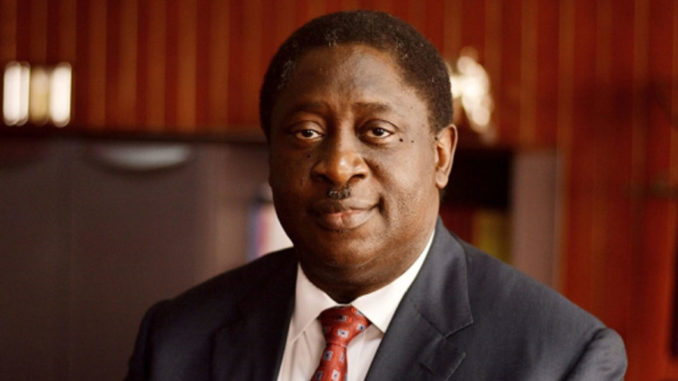
The ranking of higher institutions of learning has since become a global practice. Shanghai Academic Ranking of World Universities and Times Higher Education World University Ranking have globally ranked universities periodically. It is a form of quality assurance with an embedded power relations. Those rated at the top of the ladder of the ranking matrix are obviously seen as the best institutions and the destination of those in search of the holy grail of academic achievement.
Thus, in terms of capitalisation of learning, it brings money into the economy of countries so rated including research benefits. In the light of this perspective and the recent outburst of Dr. Wale Babalakin to the effect that Nigerian universities must take a pride of place in these ranking than the current 800th position, it becomes pertinent to revisit once more the parlous state of the educational sector in the country.
At the University of Ilorin’s Third Yearly Registry Lecture Series, titled: ‘Public Service Rules And University Administration: Re-engineering For Excellence’, Dr. Babalakin who is the Pro-Chancellor of the University of Lagos, bemoaned the low ranking of Nigerian higher institutions in the global matrix and then called for the immediate revamping of higher institutions of learning to improve their global ranking. On an optimistic tone, he even suggested a five-year time frame for achieving a place in the cluster of the best 100 universities globally. However, mindful of the constraint, namely, funding from the vantage position of being government’s chief negotiator with Academic Staff Union of Universities (ASUU), he noted that from the needs assessments of Nigerian universities, about N1.2m would be required to train a student yearly and then posed the question regarding where the funding would come from.
For him someone must pay. In his words: “A school of thought is that the money must come from government. If the government can afford it, why not? But where will it come from? Our position, as negotiators for the government, is that somebody must pay – either government or someone else – but we are not willing to delay the revitalisation of Nigerian universities.”
The above question on whose responsibility it is to pay for education is thought provoking. But the question was left unanswered. The crucial starting point is that we must answer the question as to what education is. Is it a public or private good? We believe it is a public good and therefore public authorities cannot shy away from shouldering the responsibility besides other funding innovations.
ASUU as a major stakeholder in the higher institutions of learning has always been forthcoming in terms of solution to revamp the educational sector and has often pointed the way in terms of meeting the funding requirements of universities beyond government fixation to commercialisation and privatisation of higher education in the country. The central government in Nigeria has persistently underfunded education. In terms of budgetary allocation, it has never exceed seven per cent in the last two decades. This is a far cry from the UNESCO threshold of 26 per cent, which countries like Ghana and Mauritius have exceeded.
As ASUU has consistently averred what is required is political will and financial commitment to pull the educational sector out of the woods. The tertiary education teachers’ association made bold to suggest funding sources, which “include the Education Tax Fund to be amended to Higher Education Fund for effective rehabilitation, restoration and repositioning of tertiary educational institutions in Nigeria; Petroleum Technology Development Fund (PTDF) to be accessed and effectively utilised for research, training and development of academic staff; Patronage of University Services by the Federal and State agencies for quality consultancies on the basis of due process; attraction of Funds from Alumni Association through direct funding, endorsements, bequests, etc. and private sector contributions including voluntary agencies and philanthropic individuals.”
Leaping into the cluster of the best 100 is hardly possible without a serious consideration of ASUU’s position. Also, it should be noted that improvement in ranking is a function of many factors. Some of these factors include presence in the global communication highway by means of Internet communication, which the Shanghai ranking matrix calls Bibliometric data. This allows the scholarly community globally to access research outputs of universities with active domains and from sundry universal online resources such as Web of Science and InCites. Another is prestigious award won by staff of an institution, papers published in top rate journals, normalised citation impact and international collaboration. ‘The Times’ Higher Education World University Ranking index focuses on faculty citation, employers reputation, faculty-students ratio and proportion of international students. The learning condition in Nigeria and widespread insecurity are obvious constraints to achieving some of these benchmarks.
Nonetheless, we believe that through prioritisation of expenditure, and application of ASUU proffered solutions, government can meet these obligations and easily revitalise the educational sector and make the country the envy of others. Ambiguity and prevarication regarding what is to be done would render Babalakin’s optimism a mirage, sadly at a time education quality has become a weapon of country and global competitiveness.
END

Be the first to comment